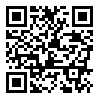Volume 36, Issue 2 (summer 2023)
JMDP 2023, 36(2): 123-166 |
Back to browse issues page
Download citation:
BibTeX | RIS | EndNote | Medlars | ProCite | Reference Manager | RefWorks
Send citation to:



BibTeX | RIS | EndNote | Medlars | ProCite | Reference Manager | RefWorks
Send citation to:
Taherpour kalantari H. (2023). National Culture Development Model in Upstream Policies. JMDP. 36(2), 123-166. doi:10.61186/jmdp.36.2.123
URL: http://jmdp.ir/article-1-4483-en.html
URL: http://jmdp.ir/article-1-4483-en.html
Department of Public Administration, Institute for Management and Planning Studies, Tehran, Iran. , h.taherpour@imps.ac.ir
Abstract: (2630 Views)
Purpose: Culture, in all its dimensions, is a fundamental component of sustainable development. The purpose of this paper was to provide a model for the development of national culture in upstream policies.
Methodology: The method in this study was case research and content analysis by manual method. Based on literature review, the theoretical and conceptual components of national culture development were first obtained. Then, by studying the upstream documents (basic Islamic-Iranian model of progress, the statement of the second step of the revolution, the general policies of the second to the sixth development plans, and finally, all the general policy clauses on various cultural issues approved by the Expediency Discernment Council) were identified.
Findings: In this study, a national culture development model for general policies is presented. The obtained model suggests what authorities are responsible and what mechanisms can be used to strengthen and create positive elements of culture and to weaken and eliminate negative elements of culture.
Methodology: The method in this study was case research and content analysis by manual method. Based on literature review, the theoretical and conceptual components of national culture development were first obtained. Then, by studying the upstream documents (basic Islamic-Iranian model of progress, the statement of the second step of the revolution, the general policies of the second to the sixth development plans, and finally, all the general policy clauses on various cultural issues approved by the Expediency Discernment Council) were identified.
Findings: In this study, a national culture development model for general policies is presented. The obtained model suggests what authorities are responsible and what mechanisms can be used to strengthen and create positive elements of culture and to weaken and eliminate negative elements of culture.
Type of Study: Conceptual Paper |
Received: Jun 08 2022 | Accepted: May 21 2023 | ePublished: Nov 11 2023
Received: Jun 08 2022 | Accepted: May 21 2023 | ePublished: Nov 11 2023
References
1. Andreatta, S., & Ferraro, G. (2012). Elements of Culture: An Applied Perspective. Cengage Learning.
2. Arnold, R. (2009). Fashion: A Very Short Introduction. OUP Oxford. [DOI:10.1093/actrade/9780199547906.001.0001]
3. Babu, V. R., & Arunraj, A. (2019). Fashion Marketing Management: Woodhead Publishing India.
4. Basiri, M., Shahsavari, M., Nasri, F., & Seed Esmaeeli, M. (2021). Developing AJA Cultural Defense Strategies Against Cultural Aggression. Defensive Future Studies, 6(21), 155-186. [In Farsi] [DOI:10.22034/dfsr.2021.534192.1518]
5. Brooks, I. (2009). Organisational Behaviour: Individuals, Groups and Organisation. Pearson Education.
6. Denison, D. R. (1996). What is the Difference between Organizational Culture and Organizational Climate? A Native's Point of View on a Decade of Paradigm Wars. Academy of Management Review, 21(3), 619-654. [DOI:10.2307/258997]
7. Kainikara, S. (2008). A Fresh Look at Air Power Doctrine. Air Power Development Centre Tuggeranong, ACT.
8. Li, J., & Karakowsky, L. (2002). Cultural Malleability in an East Asian Context: An Illustration of the Relationship between Government Policy, National Culture, and Firm Behavior. Administration & Society, 34(2), 176-201. [DOI:10.1177/0095399702034002003]
9. Madouni, A. (2021). The Cultural Invasion and Its Impact on Security Breakthroughs of the Nation. Turkish Online Journal of Qualitative Inquiry, 12(8), 843-863.
10. Malaki, H., Hashemian, F., & Aghamohammadi, J. (2015). Cultural Development Strategies from the Viewpoint of Imam Ali: Dimensions and Components. Socio-Cultural Development Studies, 4(2), 9-34. [In Farsi] [http://journals.sabz.ac.ir/scds/article-1-164-fa.html]
11. Newton, C., & Knight, R. (2022). Handbook of Research Methods for Organisational Culture. Edward Elgar Publishing. [DOI:10.4337/9781788976268]
12. Panahi, A. (2015a). Cultural Invasion and Moral Insecurity in Thoughts of Imam Khamenei. Cumhuriyet Üniversitesi Fen Edebiyat Fakültesi Fen Bilimleri Dergisi, 36(3), 3449-3457.
13. Panahi, M. H. (2015b). Cultural Development, a Requirement For Economic, Social and Political Development. Social Development & Welfare Planning, 6(22), 1-23. [DOI:10.22054/qjsd.2015.1469]
14. Park, J. (2019). The Influence of Authoritarian Organizational Culture in the South Korean Civil Service: Organization of Land Management, Organization Management, Human Resource Management, Healthcare and Social Welfare. University of Birmingham.
15. Sakalasooriya, N. (2020). The Concept of Development Definitions, Theories and Contemporary Perspectives. University of Kelaniya, 1(1), 1-35.
16. Schein, E. (2010). Organisation Culture and Leadership: Jossey-Bass.
17. Serrat, O. (2017). Culture Theory. In Knowledge Solutions: Tools, Methods, and Approaches to Drive Organizational Performance (pp. 31-34). Springer. [DOI:10.1007/978-981-10-0983-9_7]
18. Small-Clouden, L. (2015). Globalization, Assimilation, Culture Erasure: A Review of Trinidad and Tobago. Capella University.
19. Sumner, A., & Tribe, M. (2008). International Development Studies: Theories and Methods in Research and Practice. In Ø. Jensen, H. M. Haugen, & D. Brommesson (Eds.), Internasjonal Politikk (pp. 687-690). Norsk Utenrikspolitisk Institutt. [DOI:10.4135/9781446279397]
20. UNESCO. (1982). Mexico City Declaration on Cultural Policies. World Conference on Cultural Policies.
21. Weiner, I. B., Graham, J. R., & Naglieri, J. A. (2012). Handbook of Psychology, Assessment Psychology (Vol. 10). John Wiley & Sons.
22. Zhang, Y. (2018). Views on the Cultural Invasion. 2018 International Conference on Sports, Arts, Education and Management Engineering (SAEME 2018). [DOI:10.2991/saeme-18.2018.30]
| Rights and permissions | |
 |
This work is licensed under a Creative Commons Attribution 4.0 International License. |








